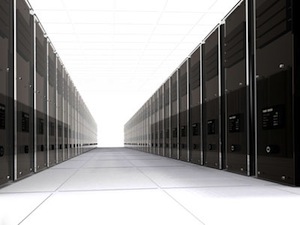 Pure Storage, a developer of solid state storage drives for businesses that need to store a lot of data, announced today that it has raised $30 million in its third round of funding, led by Greylock Partners, Redpoint Ventures and Sutter Hill Ventures.
Pure Storage, a developer of solid state storage drives for businesses that need to store a lot of data, announced today that it has raised $30 million in its third round of funding, led by Greylock Partners, Redpoint Ventures and Sutter Hill Ventures.
Pure Storage’s technology is aimed at driving down the cost of server storage. But rather than try to lower the pure cost per gigabyte for solid state memory, Pure Storage basically stores more data on solid state drives by storing it efficiently. The company uses a number of methods — like deduplication and additional compression — to reduce the amount of space important data requires on a hard disk.
“The way we’re doing data reduction, we’re getting 5- to 20-fold data reduction on the biggest storage workloads,” Scott Dietzen, CEO of Pure Storage, told VentureBeat. “We are not changing the cost per gigabyte raw of flash, we’re changing the cost per gigabyte usable in terms of how much data the user can put on.”
Solid state drives are widely seen as the next generation of storage because they are able to read and write data at a much faster rate than typical spinning-disk hard drives. Pure Storage’s hard drives are better suited for enterprises because the company’s compression software speeds up the rate at which a computer can record data onto a solid state hard drive.
June 5th: The AI Audit in NYC
Join us next week in NYC to engage with top executive leaders, delving into strategies for auditing AI models to ensure fairness, optimal performance, and ethical compliance across diverse organizations. Secure your attendance for this exclusive invite-only event.
“On more write-heavy workloads, the Pure Storage product is going to excel because writes are expensive in flash and reads are cheap,” Dietzen said. “We reduce the number of writes, which means we can dramatically under-price flash.”
Solid state drives are still much more expensive than regular hard drives with platters and mechanical arms. But over time, those typical hard drives operate more slowly because there is a limit to the mechanical speed at which the drive can read the data, Dietzen said. That limit becomes increasingly significant as drive capacity goes up. For example, a typical laptop hard drive can hold nearly a terabyte of data, and over time that amount of storage will just go up, further slowing the drives down, Dietzen said.
Samsung Venture Investment Corporation also participated in the most recent funding round. The company has raised $55 million across all three rounds of funding.


